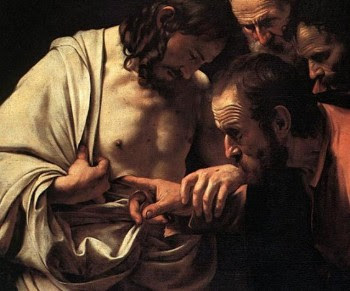Liturgy: “Doubt, Impostor Syndrome, and the Source of Confidence”
God has desired us, chosen us, and made a covenant with us. Through the sacrifice of Christ, He has ensured that our “house” is “right” with him and will be for eternity. When we acknowledge our dependence on Him, there is no need to question or try to “fake” our status.

What is the King’s Liturgy? King’s Liturgy defines our experience together as a Christian community. It outlines the rhythms we celebrate with the Church at large: Scripture readings, Sabbath habits, and celebration of Holy Days and historical events.
This Week’s Lectionary Readings
2 Samuel 23:1-7
Psalm 132:1-13
Revelation 1:4b-8
John 18:33-37
This week’s liturgy is contributed by Dr. Kelly Lehtonen, assistant professor of English and writing:
My first semester of graduate school, I fell prey to what psychologists call “impostor syndrome”—the fear that you don’t really belong. It’s the fear that you’re a pretender and fraud among the “insiders” of any given group. What should have been one of the most exciting times of my life became dark and harrowing, plagued by anxiety and doubts. Those doubts were, fundamentally, about my identity. While others had a certain je ne sais quoi that seemed to allow them to thrive, I wrestled with whether I had the temperament and aptitude to succeed in my chosen field at all. It was paralyzing, humiliating, and excruciating. A terrible way to live.
Faith can feel this way at times too. Especially when we’re distracted by the trials of daily life, it can be easy to wonder if we’re lacking something our Christian brothers and sisters have. To worry that our convictions aren’t strong enough, our love isn’t authentic enough, our acts of service don’t go far enough, our repentance isn’t sincere enough. I’ve wrestled with this spiritual impostor syndrome as well, and it’s even more devastating.
While the way to work through many secular forms of impostor syndrome involves some version of “fake it ‘til you make it,” the solution to spiritual impostor syndrome is far simpler.
Psalm 132: 13 tells us:
For the Lord has chosen Zion,
he has desired it for his dwelling.
And 2 Samuel 23:5 reminds us:
If my house were not right with God,
surely he would not have made with me an everlasting covenant,
arranged and secured in every part.
God has desired us, chosen us, and made a covenant with us. Through the sacrifice of Christ, He has ensured that our “house” is “right” with him and will be for eternity. When we acknowledge our dependence on Him, there is no need to question or try to “fake” our status. We can be honest with Him and each other about our weaknesses and insecurities, because these aren’t what define us—we are defined entirely by the righteousness of Christ. We are safe and secure in His community.
God wants us to have confidence, to rest in assurance of our standing before Him. But, mercifully, our standing has nothing to do with the strength of our confidence or assurance—or anything to do with us—it depends on Christ alone, the object and source of our faith.
I am forever grateful that, for all its emphasis on faith, Scripture records a litany of doubters, from Abraham taking God’s covenant promise into his own hands, to Thomas hesitating to acknowledge the presence of the risen Christ before him. And I am especially struck by Moses, who expressed tremendous doubt about his abilities before God Himself in the burning bush. Amazingly, despite their doubt, all have gone down among the ranks of the “faithful.” For me, their stories point to the greatest comfort of Scripture: God’s graciousness to meet us—and love us—exactly where we are.




